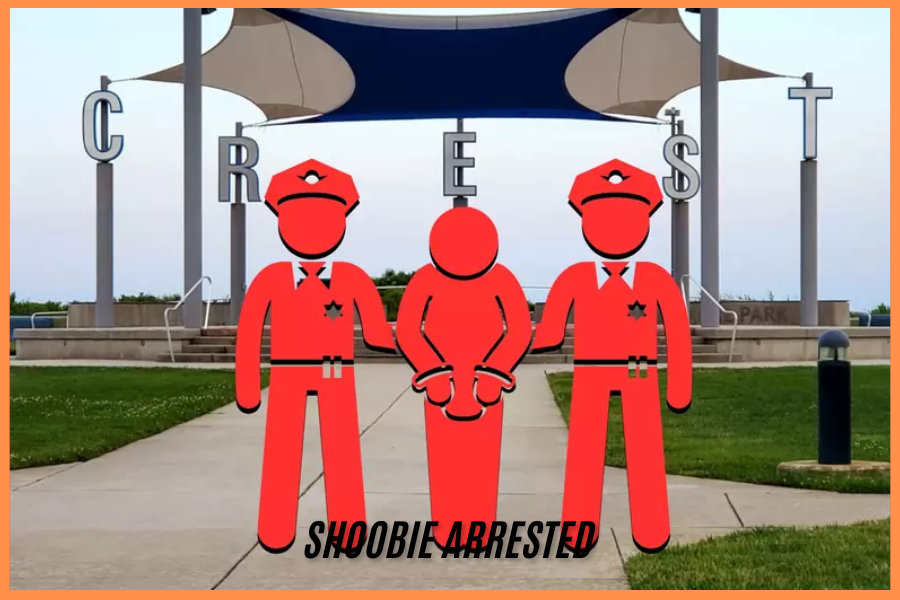Introduction
The term “shoobie” is more than just coastal slang; it’s a cultural identifier for tourists in beach towns who unintentionally or otherwise disrupt the local harmony. Originating in the 19th century, the word was initially used to describe day-trippers who brought their lunches in shoeboxes. Over time, “shoobie” became a light-hearted label for visitors. However, in recent years, the term “shoobie arrested” has gained traction due to legal incidents involving tourists. These cases reveal the complexities of balancing tourism with community norms and laws. This article explores real-life instances, the laws often violated, and how tourists can navigate these scenarios without trouble.
The History and Evolution of ‘Shoobie’
The concept of a “shoobie” dates back to the industrial era when city dwellers sought respite at seaside towns. These visitors often brought their food and avoided spending money at local establishments, causing mild irritation among locals. As tourism grew, so did the dichotomy between locals and visitors. Shoobies became synonymous with outsiders who, knowingly or unknowingly, disrupted the area’s daily flow. Over time, “shoobie” evolved into a more general term for any tourist in a beach town.
What’s fascinating is how the term has shifted to include those who attract attention for negative reasons, particularly when arrests occur. “Shoobie arrested” has since become a trending phrase, often associated with unusual or criminal incidents.
Wiki
| Incident | Location | Date | Offense | Arrest Outcome | Details |
| Wildwood Marijuana Case | Wildwood, New Jersey | February 2022 | Drug Possession & Distribution | First-degree drug distribution charges | Michael Shank arrested after leaving two suitcases containing 25 pounds of marijuana unattended on a busy street corner. |
| Sea Isle City Burglaries | Sea Isle City, New Jersey | March 2020 | Theft & Property Damage | Arrest for multiple burglaries | John George, a tourist, was involved in several car burglaries. His arrest sparked discussions about the impact of tourism on local crime rates. |
| Sindh Fraud Scheme | Sindh, Pakistan | September 2021 | Fraud & Deceptive Practices | Arrest for orchestrating online business fraud | Shoaib was arrested for defrauding unemployed individuals by offering false business opportunities. |
Case Studies: Shoobie Arrests in Action
1. Wildwood’s Suitcase Fiasco
Wildwood, New Jersey, is no stranger to tourists, but it became the epicenter of a shoobie-related arrest in February 2022. Michael Shank, a visitor from Pennsylvania, left two suitcases unattended on a busy street corner. Upon inspection, local authorities discovered they contained over 25 pounds of marijuana. This incident quickly escalated, leading to Shank’s arrest on first-degree drug distribution charges.
The situation highlights the stark contrast between casual tourism and criminal activity. Wildwood authorities emphasized that such incidents not only disrupt local safety but also tarnish the area’s reputation as a family-friendly destination.
2. Sea Isle City and the Burglaries
Another notable case occurred in Sea Isle City, New Jersey, in March 2020. John George, a tourist from Pennsylvania, was implicated in multiple car burglaries between 47th and 51st streets. Dubbed a shoobie by locals, George was arrested after a detailed investigation revealed his involvement in theft and property damage.
While burglaries are not unique to tourists, the incident reignited conversations about how visitors impact local crime rates. Residents called for stricter policing during peak tourist seasons, emphasizing the need for awareness and accountability among visitors.
3. Fraudulent Activities in Sindh
The term “shoobie arrested” isn’t confined to beach towns. In September 2021, Shoaib alias Shabi was arrested in Sindh, Pakistan, for orchestrating an online business fraud. Shoaib lured unemployed individuals into investing in a fake online venture, promising lucrative returns. While not a traditional “shoobie,” Shoaib’s actions reflect how outsiders exploiting locals can lead to community unrest and legal action.
Legal Implications of Shoobie Arrests
Drug Possession and Distribution
Incidents like the Wildwood case underline the severe consequences of drug-related offenses. Possessing or distributing controlled substances, particularly in large quantities, can lead to first-degree charges. These charges often come with hefty fines, long-term imprisonment, and a permanent criminal record.
Theft and Property Damage
Cases such as the Sea Isle City burglaries highlight the legal repercussions of theft. Depending on the value of the stolen items and the extent of property damage, perpetrators can face misdemeanor or felony charges. For tourists, these arrests often result in immediate detention, legal fees, and the potential for deportation if they’re visiting from another country.
Fraud and Deceptive Practices
Fraudulent activities, like those orchestrated by Shoaib, are met with stringent penalties worldwide. Victims of fraud often experience financial losses, and perpetrators face charges ranging from identity theft to wire fraud, with penalties including jail time and restitution.
How Tourists Can Avoid Legal Troubles
Understand Local Laws
One of the most effective ways to avoid trouble is to research the local laws and regulations of your destination. Many tourists unknowingly violate laws due to ignorance, such as public drinking in areas where it’s prohibited or carrying prohibited substances.
Respect Community Norms
Every locale has its unique customs and expectations. For instance, some beach towns have strict noise ordinances or curfews. Adhering to these norms not only helps tourists avoid trouble but also fosters goodwill with the local community.
Stay Informed
Keeping up with local news can alert tourists to potential risks, such as crime hotspots or areas under surveillance. Awareness is key to navigating unfamiliar territories safely.
Avoid Engaging in Illegal Activities
While this may seem obvious, cases like those mentioned above indicate that some tourists willingly engage in unlawful behavior. Whether it’s drug possession or theft, such actions not only harm the community but also have long-lasting consequences for the perpetrators.
Community Perspectives on Shoobie Arrests
From a community standpoint, the influx of tourists is both a blessing and a challenge. On one hand, tourism boosts local economies, creates jobs, and fosters cultural exchange. On the other, it can strain resources, disrupt daily life, and, in some cases, lead to increased crime rates.
Beach towns like Wildwood and Sea Isle City have implemented measures to balance these dynamics. Increased police patrols, public awareness campaigns, and community policing initiatives are just a few strategies employed to mitigate the negative impacts of tourism.
However, the responsibility doesn’t lie solely with law enforcement. Locals and tourists alike must work together to ensure that these destinations remain safe and welcoming for everyone.
Shoobie Culture and Its Impact on Tourism
Despite the negative connotations associated with “shoobie arrested,” the shoobie culture is deeply ingrained in beach-town life. Tourists bring diversity, energy, and economic activity, which are crucial for sustaining many small coastal towns. However, balancing this with the preservation of local traditions and norms is an ongoing challenge.
Some towns have embraced shoobies by organizing events and festivals that celebrate their presence. These initiatives create a positive narrative around tourism and encourage respectful interaction between locals and visitors.
A Broader Look at Tourism-Related Arrests
The phenomenon of “shoobie arrested” is part of a larger trend involving tourism-related arrests. As global travel continues to grow, incidents involving tourists have become more common. From public intoxication to vandalism, these cases highlight the need for increased awareness and education among travelers.
Interestingly, many destinations have started offering orientation programs for tourists. These programs include information on local laws, cultural norms, and safety tips, helping visitors navigate their surroundings responsibly.
By fostering a culture of mutual respect and understanding, destinations can minimize conflicts and ensure that tourism remains a positive force.
Conclusion
The phrase “shoobie arrested” has become synonymous with certain disruptive or illegal activities committed by tourists in beach towns, but it’s more than just a buzzword—it’s a reflection of the challenges that tourist-heavy communities face when trying to maintain safety and order. From drug possession to theft, incidents involving shoobies have highlighted the potential legal consequences that visitors may face when they step outside the bounds of local laws and norms. However, it’s important to remember that the majority of tourists enjoy their time without causing harm.
To ensure a peaceful visit, it’s essential that tourists familiarize themselves with local laws, respect the community’s culture, and always act responsibly. By doing so, they can help preserve the positive aspects of tourism—economic growth, cultural exchange, and the enjoyment of beautiful destinations—while avoiding the pitfalls that can lead to arrests and long-lasting consequences.
FAQs about “Shoobie Arrested”
1. What does “shoobie arrested” mean?
“Shoobie arrested” refers to tourists, often labeled as “shoobies,” who get arrested for engaging in illegal activities or violating local laws while visiting a beach town or tourist destination.
2. How do “shoobie” arrests differ from regular arrests?
While a regular arrest may involve locals or residents, a “shoobie” arrest typically involves tourists who are unfamiliar with local laws or engage in actions that disrupt the community, such as drug use, theft, or fraud.
3. Can a tourist be deported after a “shoobie arrest”?
Yes, depending on the severity of the offense and the nationality of the tourist, deportation could be a possibility, especially if the crime is serious or involves legal violations like drug trafficking or identity fraud.
4. What are the most common crimes leading to “shoobie arrests”?
The most common crimes include drug possession and distribution, theft, vandalism, and fraudulent activities. Tourists who are unaware of local laws or who intentionally engage in illegal behavior are most likely to face arrests.
5. How can tourists avoid becoming a “shoobie arrested”?
Tourists can avoid arrests by familiarizing themselves with local laws before visiting, respecting the community’s rules and customs, and avoiding any illegal activities such as using or distributing drugs, stealing, or committing fraud. Staying informed about local crime hotspots can also help.
6. Are there programs to educate tourists about local laws?
Yes, many destinations offer orientation programs for tourists to help them understand local laws, customs, and expectations. These programs are often designed to reduce misunderstandings and encourage responsible tourism.
7. What should I do if I get arrested as a tourist?
If you are arrested as a tourist, it’s important to stay calm, comply with authorities, and seek legal assistance. Contacting your embassy or consulate for support is also a critical step to ensure your rights are protected during the legal process.
8. Do all beach towns experience “shoobie arrests”?
While not every beach town experiences “shoobie arrests,” popular tourist destinations with large numbers of visitors are more likely to see incidents involving tourists. The higher the foot traffic, the greater the chance for legal issues to arise.
Unlock the latest news and updates on Magazine Format

